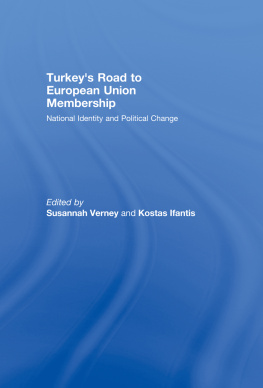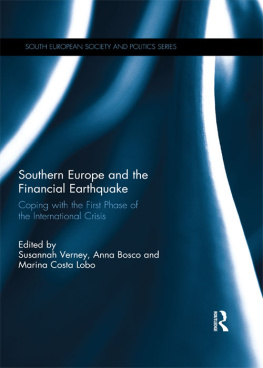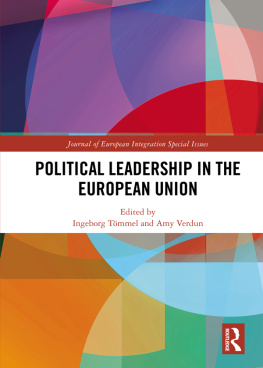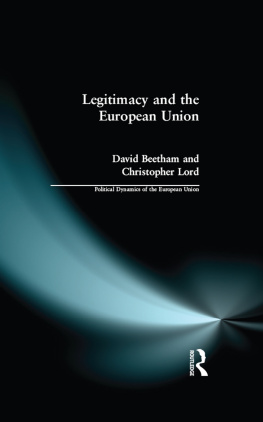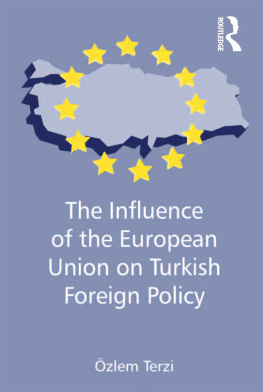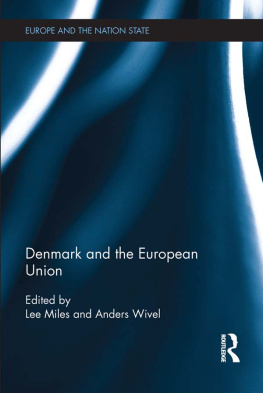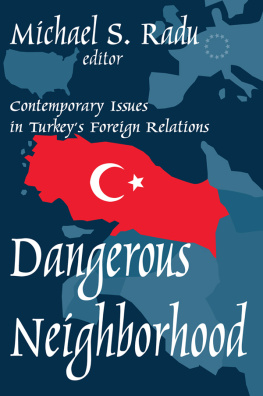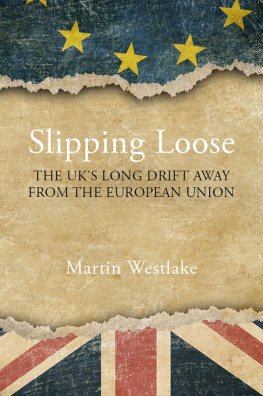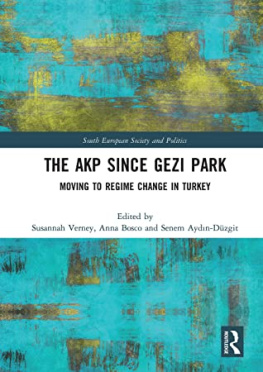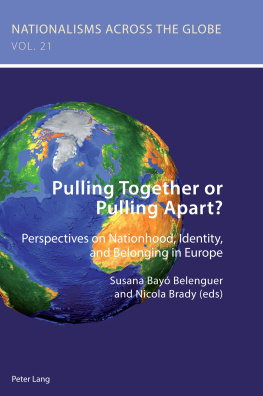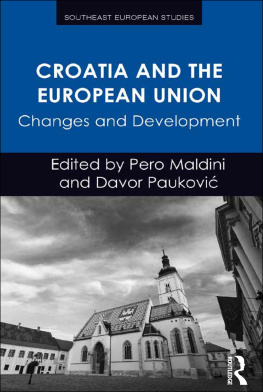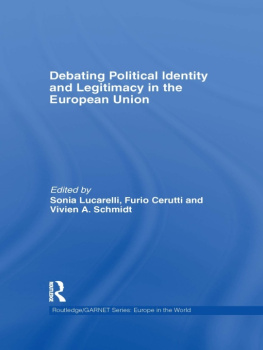Turkeys Road to European Union Membership
Enlargement to Turkey is arguably the greatest challenge facing the European Union today. After the narrowly averted train crash over Cyprus in 2006, the second election victory of the Justice and Development Party in July 2007 opened new prospects for Turkish-EU relations. But in an EU emphasising a collective identity based on shared civilisational values, Turkeys European credentials have been increasingly called into question. Amending national identity through political change has become the key to the success or failure of the Turkish integration project. This volume examines the EU role in strengthening the domestic pro-reform coalition within Turkey, the paradoxand potential limitsof Turkeys europeanising Islamists, and the impact of Europeanisation through conditionality, including a case study of Turkish policy towards the Cyprus Question. Also addressed are the Western stereotypes of Turkish identity influencing the countrys EU prospects, notably concerning the role of Islam in precipitating acts of political violence and its association with sexual and political violence in the discourse of European opponents of Turkish accession. In addition, the dynamics of EU accession negotiations are analysed and the potential role of a norm-driven rhetorical strategy in promoting Turkish accession as a moral and democratic imperative is discussed.
This book was previously published as a special issue of the Journal of Southern Europe and the Balkans.
Susannah Verney is Lecturer in International and European Studies, University of Athens and Editor, South European Society & Politics.
Kostas Ifantis is Associate Professor of International Relations, University of Athens.
Turkeys Road to European Union Membership
National Identity and Political Change
Edited by
Susannah Verney and Kostas Ifantis
First published 2009 by Routledge
2 Park Square, Milton Park, Abingdon, Oxon, OX14 4RN
Simultaneously published in the USA and Canada by Routledge
270 Madison Avenue, New York, NY 10016
Routledge is an imprint of the Taylor & Francis Group, an informa business
Transferred to Digital Printing 2009
2009 Edited by Susannah Verney and Kostas Ifantis
Typeset in Palatino 10/12pt by Alden Prepress Services, Northhampton
All rights reserved. No part of this book may be reprinted or reproduced or utilised in any form or by any electronic, mechanical, or other means, now known or hereafter invented, including photocopying and recording, or in any information storage or retrieval system, without permission in writing from the publishers.
British Library Cataloguing in Publication Data
A catalogue record for this book is available from the British Library
ISBN 10: 0-415-46619-9 (hbk) ISBN 13: 978-0-415-46619-6 (hbk)
CONTENTS
SUSANNAH VERNEY
KOSTAS IFANTIS
LUIGI NARBONE AND NATHALIE TOCCI
ZIYA NI
MUSTAFA AYDIN AND SINEM A. ACIKMESE
ERSIN KALAYCIOLU
HAKAN YILMAZ
SUSANNAH VERNEY
KIVAN ULUSOY AND SUSANNAH VERNEY
SINEM ACIKMESE is a Research Assistant at Ankara University.
MUSTAFA AYDIN is a Professor and Chair of the Department of International Relations at the University of Economics and Technology, Ankara.
KOSTAS IFANTIS is Associate Professor of International Relations, University of Athens.
LUIGI NARBONE is an official of the European Commission.
ZIYA NI is Professor of European Politics and International Relations at Ko University, Istanbul.
ERSIN KALAYCIOLU is a Political Scientist at Sabanci University, Istanbul.
NATHALIE TOCCI is a Senior Fellow at the Istituto Affari Internazionali, Rome.
KIVAN ULUSOY is an Assistant Professor at the Faculty of Political Sciences of Istanbul University, Istanbul.
SUSANNAH VERNEY is Lecturer in International & European Studies at the University of Athens and Editor of South European Society & Politics.
HAKAN YILMAZ is Professor of Political Science, Bogazici University, Istanbul.
SUSANNAH VERNEY
Reluctant partners
Turkeys long march to European Union began almost 50 years ago. In July 1959, Turkey became only the second non-founder member of the then EEC to ask to participate in the European integration process, submitting its application for an Association just weeks after Greece. The Ankara Agreement, signed in 1963, inaugurated economic integration between Turkey and the EEC while leaving Turkey outside the political decision-making process. From the start, the Turkish relationship with the EEC was framed in a prospect of eventual full membership. Thus, according to Article 28 of the Association,
As soon as the operation of the Agreement has advanced far enough to justify envisaging full acceptance by Turkey of the obligations arising out of the Treaty establishing the Community, the Contracting Parties shall examine the possibility of the accession of Turkey to the Community.
This was reinforced by the preamble to the Agreement, which stated that
the support given by the European Economic Community to the efforts of the Turkish people to improve their standard of living will facilitate the accession of Turkey to the Community at a later date.
Despite this apparent statement of intent, another 41 years were to pass before Turkey opened negotiations for accession to what was by then the European Union. In the meantime, five successive Enlargements had resulted in 19 other states gaining full membership ahead of Turkey (followed by another two states in 2007). This long delay can be attributed to reluctance on both sides.
In the 1970s, it was Turkey which was the hesitant partner. The Association Agreement had become the object of growing domestic criticism, as industrialists feared a move away from a national economic development strategy based on import substitution. A particular cause of contention was the limits on Turkish textile imports unilaterally imposed by the EC in 1978. Meanwhile, there had been unrealistic expectations of EC aid, with the Turkish government requesting $8 billion, when the EC was prepared to offer $600 million.1 Disappointment with the EC was aggravated by the opening of accession negotiations with Greece, with which Turkey was engaged in a series of bilateral disputes in the Aegean. The Turkish government regarded the Greek accession application as a political act aimed at getting a new international platform against Turkey.2 Rather than seeking closer ties with the EC to balance the Greek factor, the Turkish response was to move away from the relationship. In October 1978 the Ecevit government imposed a unilateral freeze on the Association, reneging on the commitment to proceed to the next round of tariff cuts.
Although the Turkish side rapidly changed its mind and began seriously to consider applying for full membership,3 the military coup of 12 September 1980 effectively ruled this out. In January 1982 the Association was officially suspended by the EC following a vote in the European Parliament. Even after the Turkish parliamentary elections of 1983 restored a civilian government (with a military president), another three years were to pass before the Association Agreement began to operate again, with an Association Council meeting held at ambassadorial level in 1986. As a result, it was not until 1987 that the Turkish government finally submitted its accession application12 years after Greece and 10 years after Spain and Portugal.


